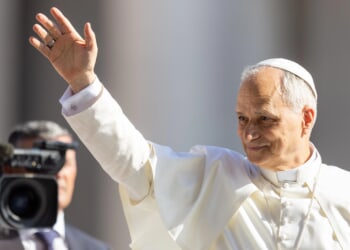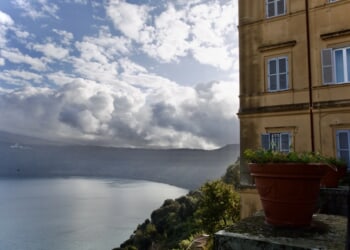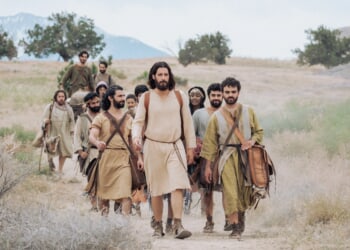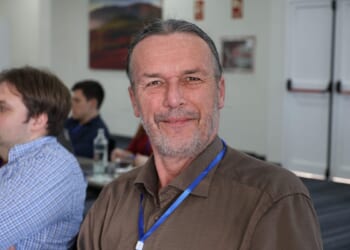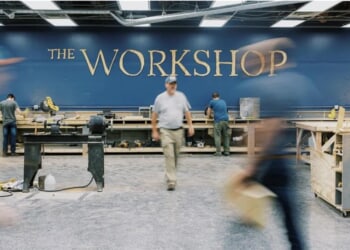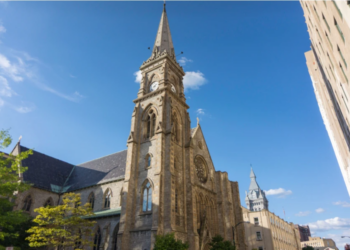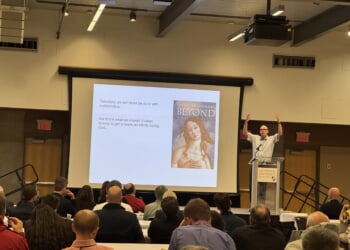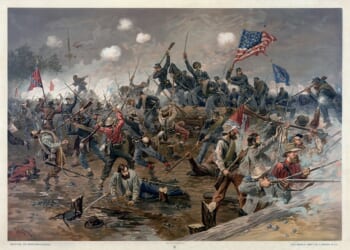Rome, Italy, Jun 22, 2025 /
13:21 pm
Pope Leo XIV on Sunday called on the faithful to “share the bread”— a sign of the gift of divine salvation — to “multiply hope and to proclaim the coming of God’s Kingdom” as he presided for the first time as pope over Mass for the Solemnity of Corpus Christi.
On the feast when the Catholic Church especially celebrates the mystery of the Eucharist —namely, the Real Presence of Jesus Christ in the consecrated bread and wine — the pontiff declared: “Christ is God’s answer to our human hunger, because his Body is the bread of eternal life: Take this and eat of it, all of you!”
The pope traveled from the Vatican to the Basilica of St. John Lateran, his cathedral as bishop of Rome, to celebrate the Mass on Sunday afternoon. The Mass was followed by a eucharistic procession along the city’s streets.
In his homily, Leo XIV reflected on the meaning of the Eucharist and the value of sharing. The celebration took place outside the basilica.
Commenting on the day’s Gospel, which recounts the miracle of the loaves and fishes, the pope noted that by saving the crowds from hunger, “Jesus proclaims that he will save everyone from death.”
In doing so, he established the foundation of the “mystery of faith, which we celebrate in the sacrament of the Eucharist,” the Holy Father said, adding, “Just as hunger is a sign of our radical needs in this life, so breaking bread is a sign of God’s gift of salvation.”
Leo said that Jesus’ compassion for the suffering “shows us the loving closeness of God, who comes into our world to save us.”
He added: “Where God reigns, we are set free from all evil.”
In the face of human finitude, he said, “when we partake of Jesus, the living and true Bread, we live for him.”
Referring again to the Gospel miracle, Leo said that the people’s hunger is a profound sign, because “at that hour of need and of gathering shadows, Jesus remains present in our midst.”
When the apostles suggest sending the crowd away, the pope pointed out, Jesus teaches a contrary logic, “because hunger is not foreign to the preaching of the Kingdom and the message of salvation.”
The pope continued, “He feels compassion for those who are hungry, and he invites his disciples to provide for them.”
The disciples offered only five loaves and two fish — a seemingly reasonable calculation that in fact “reveal their lack of faith, he said. “For where the Lord is present, we find all that we need to give strength and meaning to our lives.”
Jesus’ gesture of breaking the bread, the pope explained, “is not some complicated magical rite; they simply show his gratitude to the Father, his filial prayer and the fraternal communion sustained by the Holy Spirit.”
“To multiply the loaves and fishes, Jesus shares what is available. As a result, there is enough for everyone. In fact, more than enough,” he said.
The pope denounced current global inequalities and criticized “the accumulation by a few” as a sign “of an arrogant indifference that produces pain and injustice.”
(Story continues below)
Subscribe to our daily newsletter
“Today, in place of the crowds mentioned in the Gospel, entire peoples are suffering more as a result of the greed of others than from their own hunger,” he stated.
In this light, he called on the faithful to follow the Lord’s example and to live out this teaching with concrete actions, especially during the Jubilee of Hope.
“Especially in this Jubilee Year, the Lord’s example is a yardstick that should guide our actions and our service: We are called to share our bread, to multiply hope and to proclaim the coming of God’s Kingdom,” he said.
The Augustinian pope also quoted St. Augustine’s description of the Eucharist as “bread that restores and does not run short; bread that can be eaten but not exhausted,” observing that the Eucharist “in fact, is the true, real, and substantial presence of the Savior, who transforms bread into himself in order to transform us into himself.”
The pope referred to the existential root of communion with Christ, saying, “Our hungry nature bears the mark of a need that is satisfied by the grace of the Eucharist.”
Leo reminded the faithful that “Living and life-giving, the Corpus Domini makes us, the Church herself, the Body of the Lord.” Quoting Lumen gentium, the dogmatic constitution of the Second Vatican Council, he added: “All are called to this union with Christ, who is the light of the world, from whom we come, through whom we live, and towards whom we direct our lives.”
Before beginning the eucharistic procession to the Basilica of St. Mary Major, the pope explained its spiritual and missionary meaning.
“Together, as shepherds and flock, we will feed on the Blessed Sacrament, adore him and carry him through the streets,” he said. “In doing so, we will present him before the eyes, the consciences and the hearts of the people.”
Leo concluded with an invitation to all the faithful: “Strengthened by the food that God gives us, let us bring Jesus to the hearts of all, because Jesus involves everyone in his work of salvation by calling each of us to sit at his table. Blessed are those who are called, for they become witnesses of this love!”




